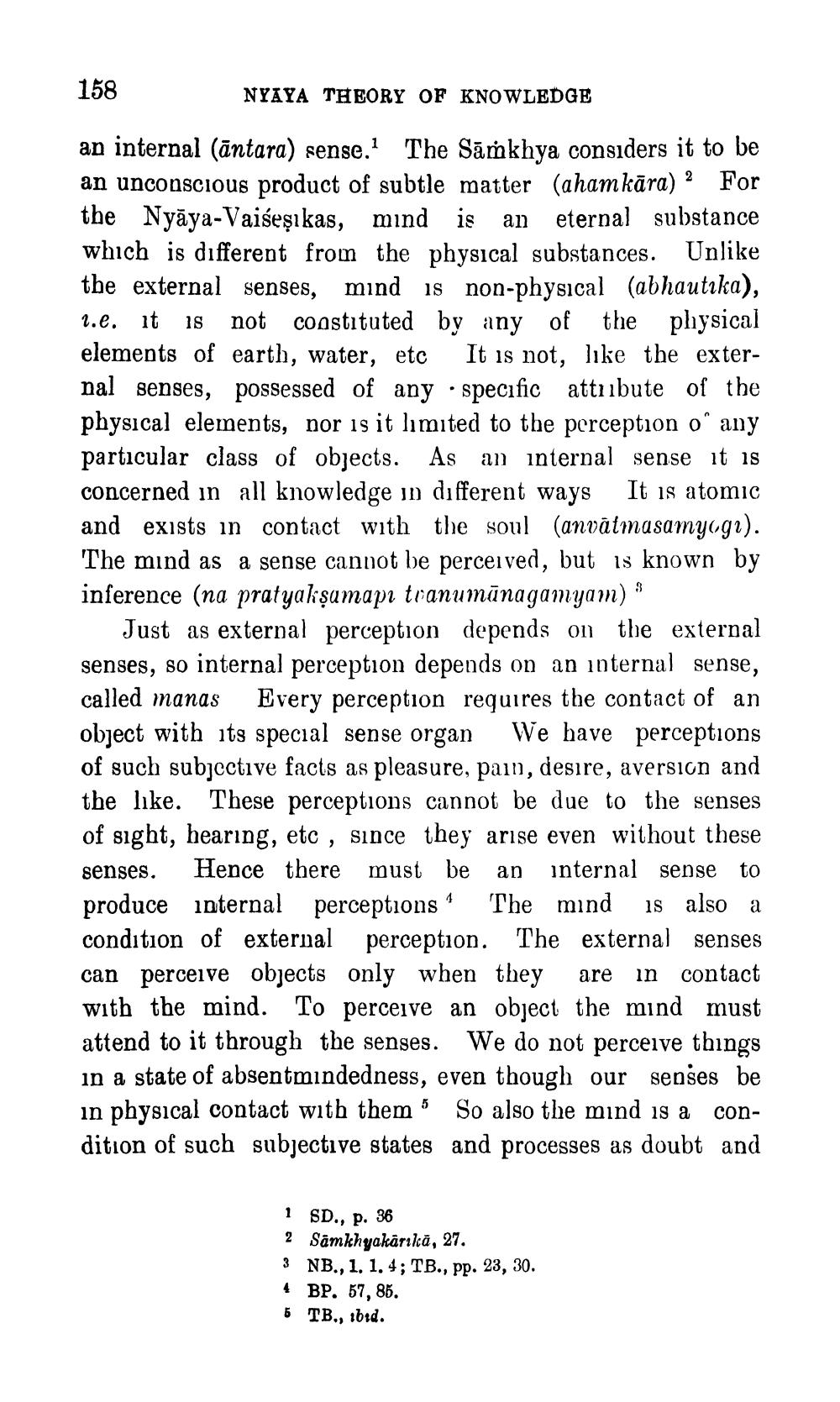________________
158
NYAYA THEORY OF KNOWLEDGE
2
an internal (antara) sense.' 1 The Samkhya considers it to be an unconscious product of subtle matter (aham kāra) 2 For the Nyaya-Vaiseşikas, mind is an eternal substance which is different from the physical substances. Unlike the external senses, mind is non-physical (abhautika), 2.e. it 18 not constituted by any of the physical elements of earth, water, etc It is not, like the external senses, possessed of any specific attribute of the physical elements, nor is it limited to the perception of any particular class of objects. As an internal sense it is concerned in all knowledge in different ways It is atomic and exists in contact with the soul (anvatmasamyagı). The mind as a sense cannot be perceived, but is known by inference (na pratyakṣamapı tranumānagamyam) *
3
Just as external perception depends on the external senses, so internal perception depends on an internal sense, called manas Every perception requires the contact of an object with its special sense organ We have perceptions of such subjective facts as pleasure, pain, desire, aversion and the like. These perceptions cannot be due to the senses of sight, hearing, etc, since they arise even without these senses. Hence there must be an internal sense to produce internal perceptions The mind is also a condition of external perception. The external senses can perceive objects only when they are in contact with the mind. To perceive an object the mind must attend to it through the senses. We do not perceive things in a state of absentmindedness, even though our senses be in physical contact with them " So also the mind is a condition of such subjective states and processes as doubt and
1 SD., p. 36
4
Samkhyakarika, 27.
3 NB., 1. 1. 4; TB., pp. 23, 30.
4 BP. 57, 85.
5 TB., ibid.




